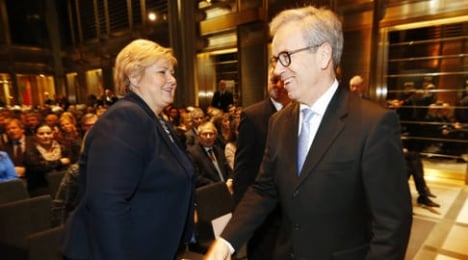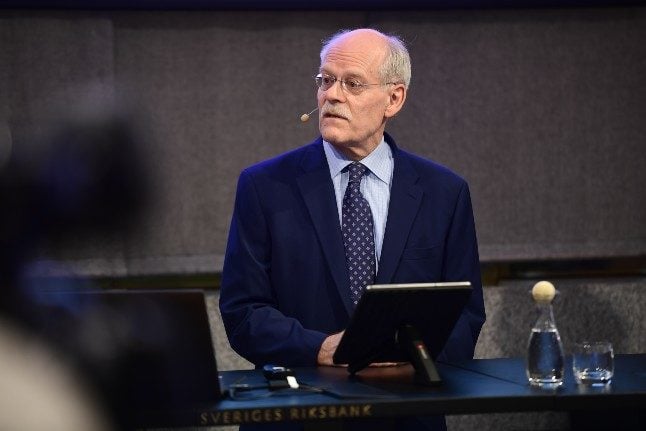INTEREST RATES
Norges Bank trips markets by holding rates
Norway’s central bank has wrong-footed the markets by leaving interest rates unchanged, causing the krone to leap 3.37 per cent against the US dollar, its highest daily rise in six years.
Published: 19 March 2015 13:33 CET

Bank governor arrives for his annual Norges Bank address in February. Photo: Lise Åserud/NTB scanpix Norway o
Norges Bank's board announced on Thursday morning said it was keeping its key policy rate unchanged at 1.25 percent, a decision only one out of 19 economists surveyed by Bloomberg had predicted.
The bank’s governor Øystein Olsen said in a statement that the bank had decided to keep rates stable because the reduction in interest rates it had made in December had yet have had a significant effect on the country's economy.
“So far, the effects on the real economy have been relatively small, and house prices are still rising at a fast pace. The key policy rate has therefore been left unchanged", he said.
He did however hint at further cuts to the policy rate in the coming months.
"If economic developments ahead are broadly in line with that projected, there are prospects for a reduction in the key policy rate", he said.
In its statement, the bank said that its board had decided that the rate should be kept between 0.5 percent and 1.5 percent up until at least the next report on 18 June 2015.
Central banks in neighbouring Sweden and Denmark have both slashed rates to historic lows in recent months as they seek to stave off deflationary spirals in their economies.
Sweden's Riksbank this week announced that it was cutting its main rate to -0.25 percent, while embarking on a quantitative easing programme.
Denmark's Nationalbanken, meanwhile, cut its deposit rate four times in three weeks in February, bringing it to an historic low of -0.75 percent, in an attempt to defend the Danish krone's peg to the euro.
While Norway faces some of the same issues as its neighbours, it does not face the same strong deflationary pressures.
The government is also concerned that the housing market in the country is running out of control, raising the spectre of a future debt crisis.
Norwegians now owe twice as much as they make in disposable incomes, higher than ever before in the country’s history.
Url copied to clipboard!


 Please whitelist us to continue reading.
Please whitelist us to continue reading.